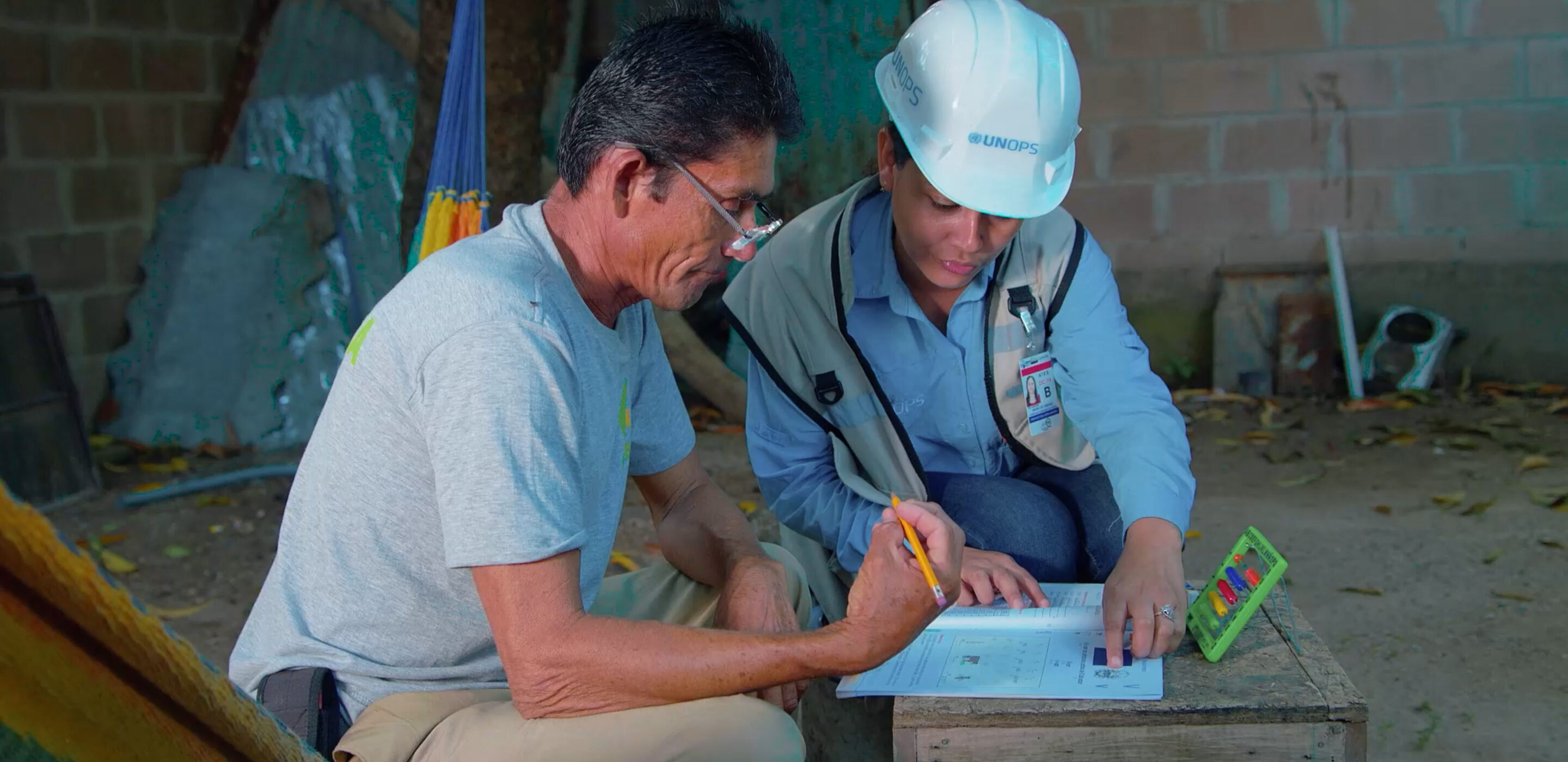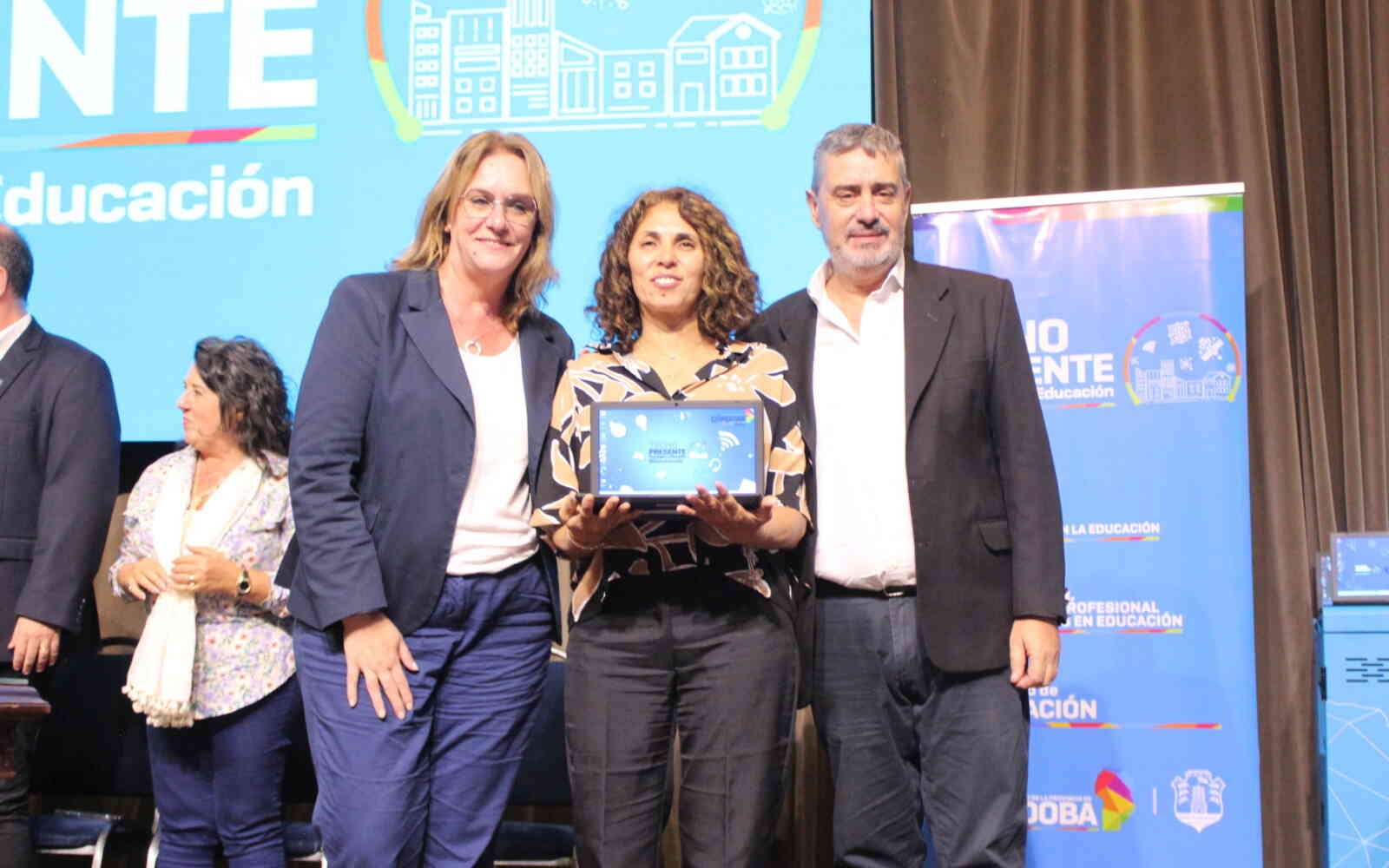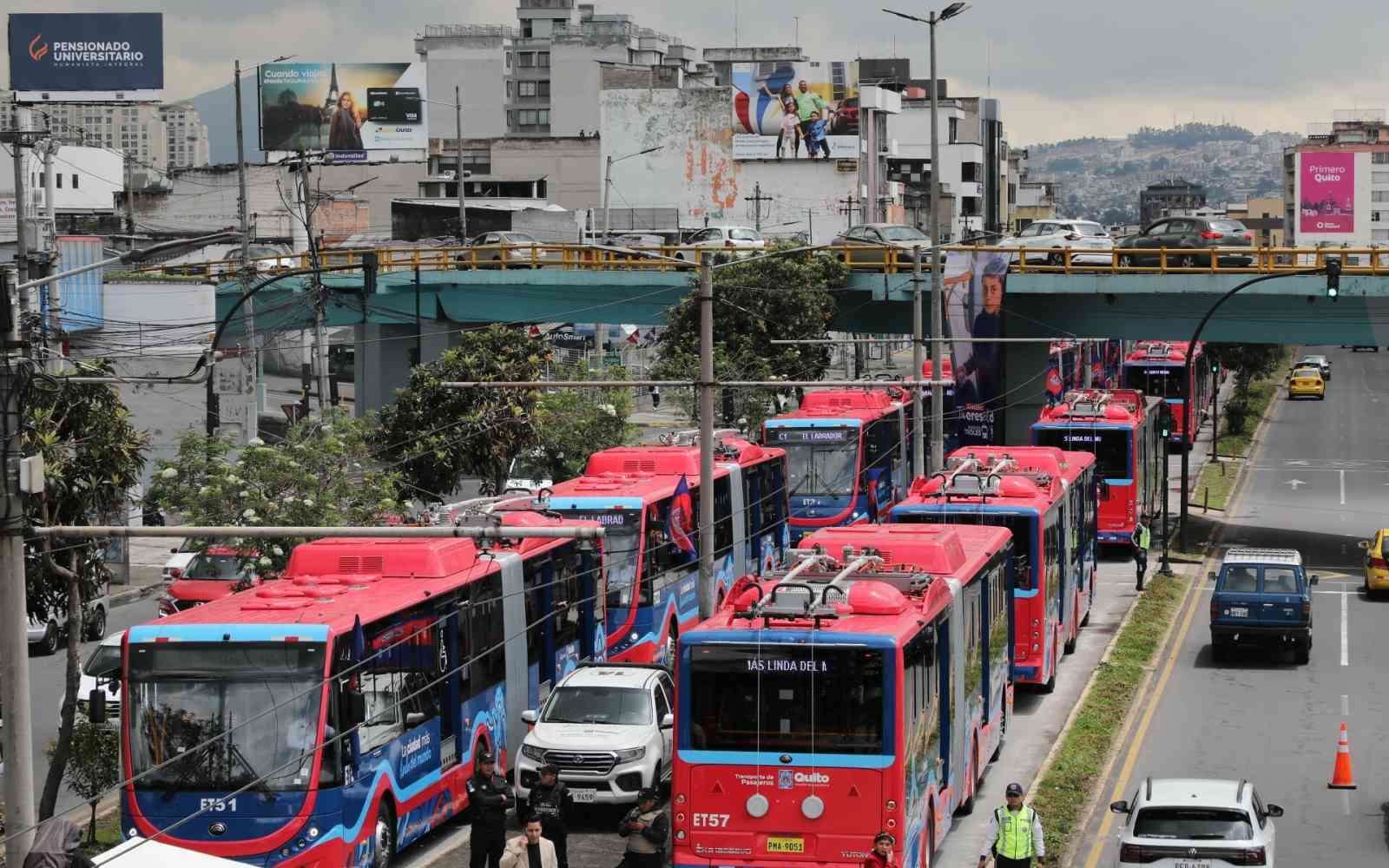The United Nations Office for Project Services (UNOPS)

An opportunity to learn
An airport infrastructure project in El Salvador is not only improving livelihoods – but also providing the chance to learn how to read.
María Isaura Flores Guerrero tells her five-year-old son the story of El Lobo Pastor* (The Shepherd Wolf) to motivate him to go to school and to highlight the importance of being able to read.
- *El Lobo Pastor is a story from 'El silabario hispanoamericano' by Adrián Dufflocq Galdames.
In the story, a wolf is tricked by a goat into crossing a broken bridge. Unable to read the sign warning about the danger ahead, the bridge collapses under the wolf's weight, plunging him to his death.
Learning to read isn't something María Isaura had the opportunity to do when she was her son's age.
"There were thirteen siblings. During our childhood, we didn't all learn to read and write. I knew the alphabet and could read some words slowly, but I didn't know how to add or subtract," says María Isaura.
My dad worked in the cornfield, in agriculture. We could only study for a year or two because the older kids had to work and help take care of the younger kids.
José Dimas, María Isaura's younger brother, fears not being able to read leaves him vulnerable. “Not knowing how to read means it's very easy to be deceived," says José Dimas. "For example, I've signed documents without knowing if I was being cheated.”
Learning to read
In El Salvador, UNOPS is providing technical assistance to the Autonomous Port Executive Commission, which is expanding El Salvador International Airport Saint Óscar Arnulfo Romero y Galdámez's passenger terminal. The $45.3 million project will increase the airport's capacity, enabling it to handle around 5 million passengers a year.
People working on this project who struggle with reading, writing and math are offered the chance to participate in a literacy programme.
Working with El Salvador's Ministry of Education, the programme uses teaching methodology and materials from the country's National Literacy Programme. Each participant's knowledge of reading, writing and math is assessed, with a diploma given certifying their skills.


When María Isaura started working on the project in 2021, three of her brothers were already working for the project and had already joined the literacy programme.
“My 15-year-old daughter was surprised to see her three adult uncles come home from work with books and notebooks under their arms. She watched them do their homework and saw how, little by little, they began to read, write and do math. She had never seen that adults could learn,” says María Isaura.
When the opportunity to join the literacy programme came, María Isaura didn't think twice – she and other members of her family working on the project signed up. In all, seven members of her family – including a sister, a niece, a sister-in-law and three of her brothers – have participated in the programme.
And even during the COVID-19 pandemic, the Flores Guerrero family kept up with their coursework via online classes and using their cell phones.
“[The literacy programme] has been a blessing in my life. I have been able to help my daughter with her homework and she has also helped me with the virtual classes. The two of us have been learning together,” says María Isaura.












